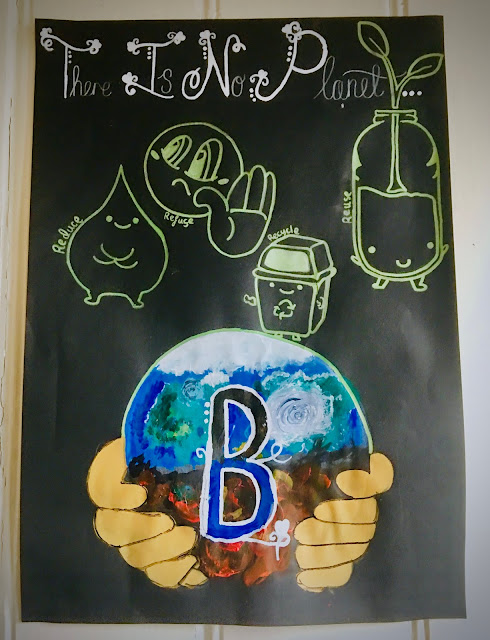The start of the new year and everyone is on health kicks, full of good intentions and inspirational plans for the rest of 2020. January often seems to knock all of those positive goals right out of you though, doesn't it?
By the time you have waded through the cold, wet days and cold, dark nights of the month of Janus, (who is the Roman God of doors, representing all beginnings, possessing the ability to see all things both past and future) you've forgotten most of those New Year Resolutions. I admit, I try to avoid making them, mostly to avoid the disappointment of failure.
Over the years I've come to realise that there seem to be two paths to success. The first is to make such general resolutions that you can more or less claim success, no matter what you do. The second is to make changes that, as much as possible, fit into your existing life. It makes sense that small, compatible changes are easier to sustain.
If, after events in 2019 pushed climate change to the top of the global agenda, you've decided that this year you want to do your bit, where do you start?
I've taken an interest in reducing my impact on the planet since my early 20s. I don't want to make any claims to being someone who is an expert, or even especially effective at this. But I do know it can be easy to feel overwhelmed; by the enormity of the problem and by the often, seemingly contradictory options presented to us in the name of environmental action.
So, I think a good start is to focus on the many, small changes that are compatible, and therefore sustainable, in our own lives. It is all about our individual priorities and making active choices, even if the science tells us next year they were wrong. Conscious choices lead to meaningful action.
When it comes to your shopping this is often called "Conscious Consumerism", and it is an often criticised stance, but I think it is the starting point for many of us. At the very least, if you are thinking about your purchasing choices, you are trying to make a difference.
Here are my top 3 tips for developing & sustaining a conscious consumer mindset:
1. Be critical when you are shopping, really look at the products you buy. Do they represent your stance on the environment? What they contain, how they are produced, where they are from, how they are packaged? If they don't, but you've not thought of an alternative, buy it this time and figure out what you can replace it with later. Maybe you just don't need it. Or, maybe you're not ready with an alternative yet. I think you'll figure one out over time, you'll maybe buy the offending item 2 or 3 more times, but, there will just be that little niggling voice, and when it's loud enough you'll make a positive change.
2. Make choices based on your needs, lifestyle, family, time in life, whatever... Environmental action is as fadish as any other area of modern life, so don't feel pushed into doing something out of guilt. But then, on the other hand, explore that guilt, are there small changes you could make? Often, the small changes lead to bigger ones, or greater understanding of the issues and our options.
3. Ask questions, ask for help, discuss your choices with like minded people, but also, gently, with those with different opinions. I often realise I am in a bit of a silo with so many of my friends having similar opinions to me. But, I do genuinely love to learn and one thing that Little Hadham Stores and the farmers' market has brought to me is both the support of like minded people and the experience and knowledge of others. These days my children can tell me something new or that I didn't know about the environment, almost weekly.
My daughter, Una, made me a poster for the shop, it says; Refuse, Reduce, Reuse, Recycle - There is no Planet B. I try as I go to purchase something, anything, for the business or our home to think about those 4 Rs.
I wrote this for my village's Parish News, and then over analysed it and couldn't decide if I even agreed with myself! After all the simple fact is - we MUST just buy less. Only through this denial are we really going to make an impact on the planet's environmental crisis. Don't you think?






















No comments